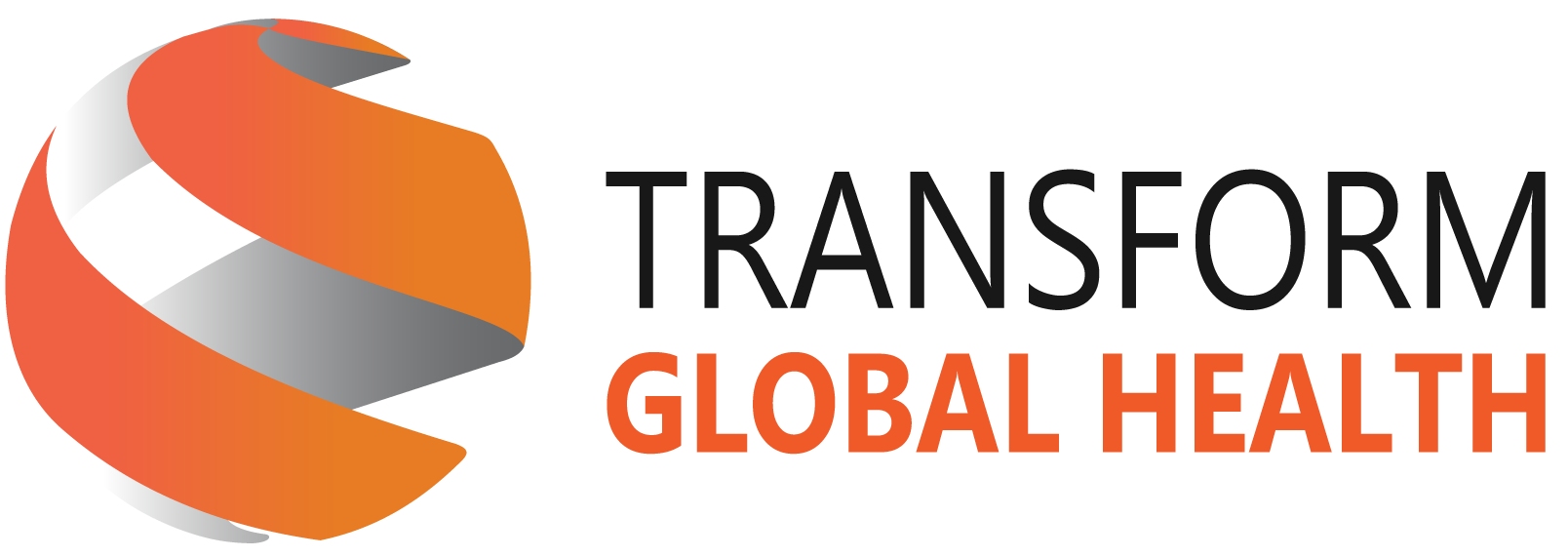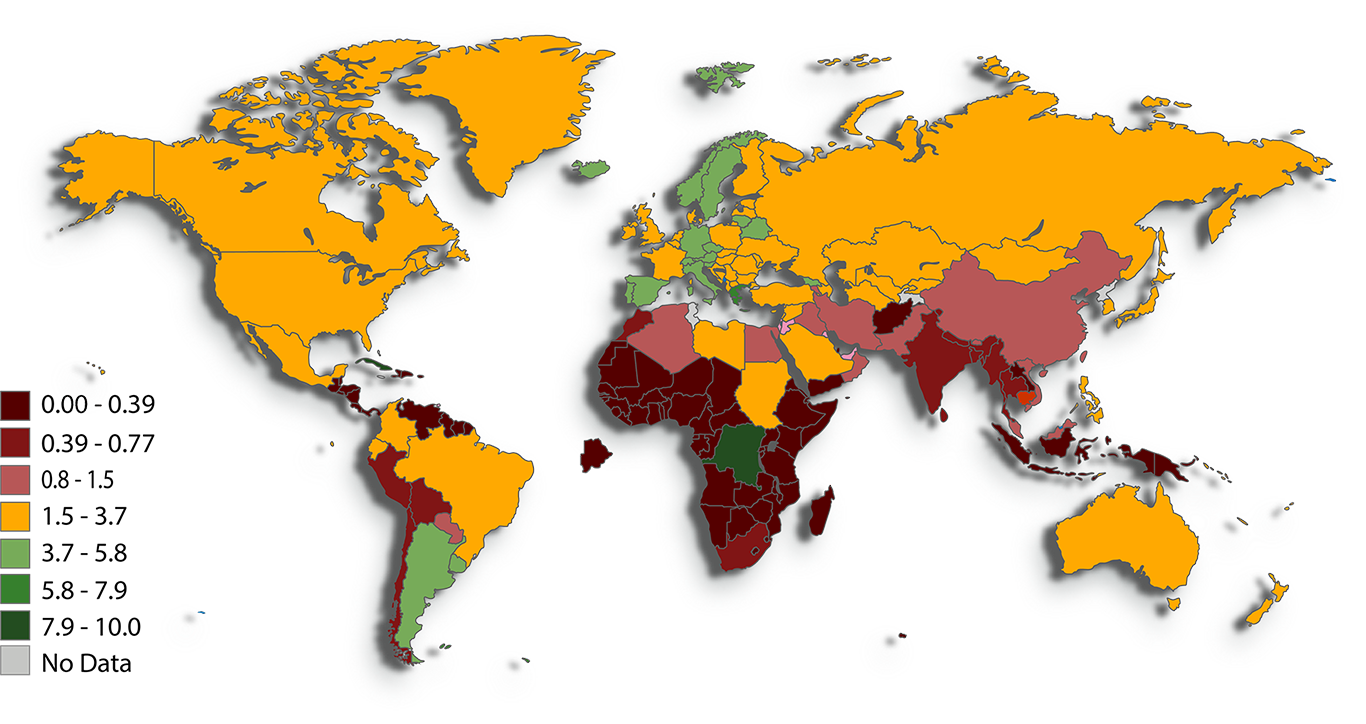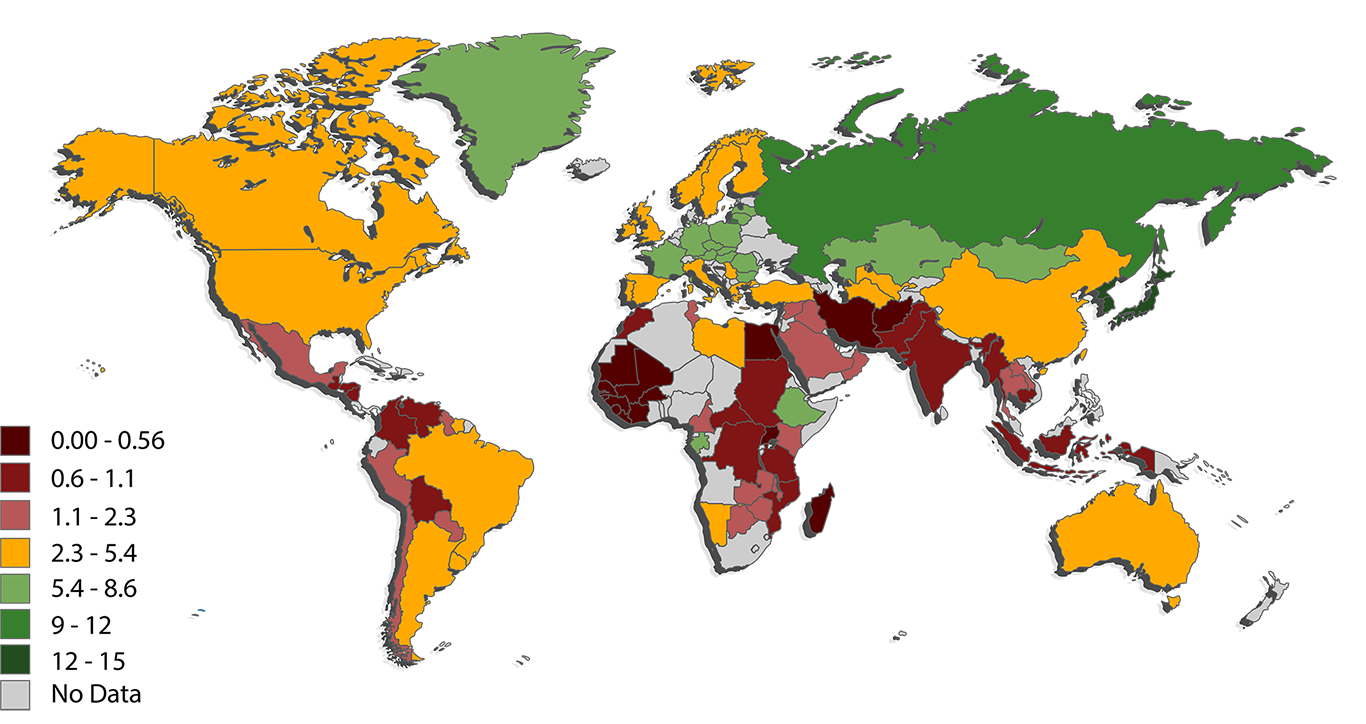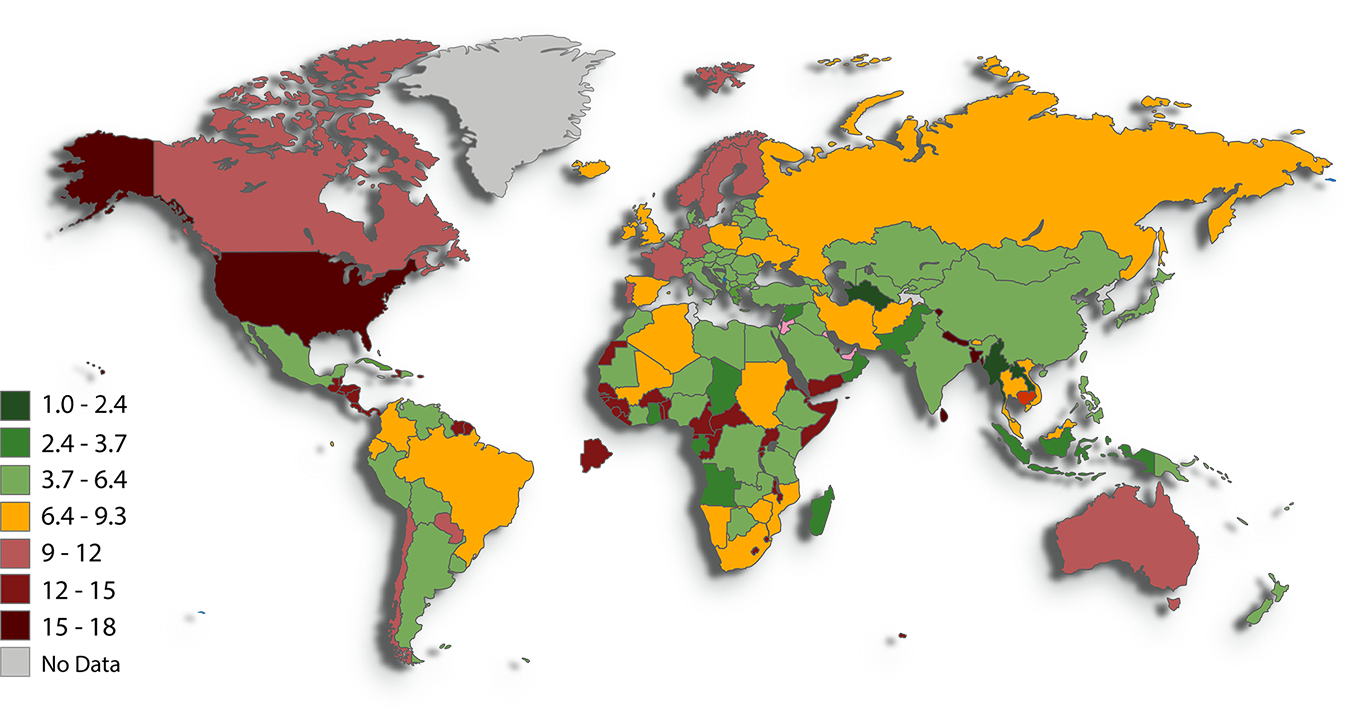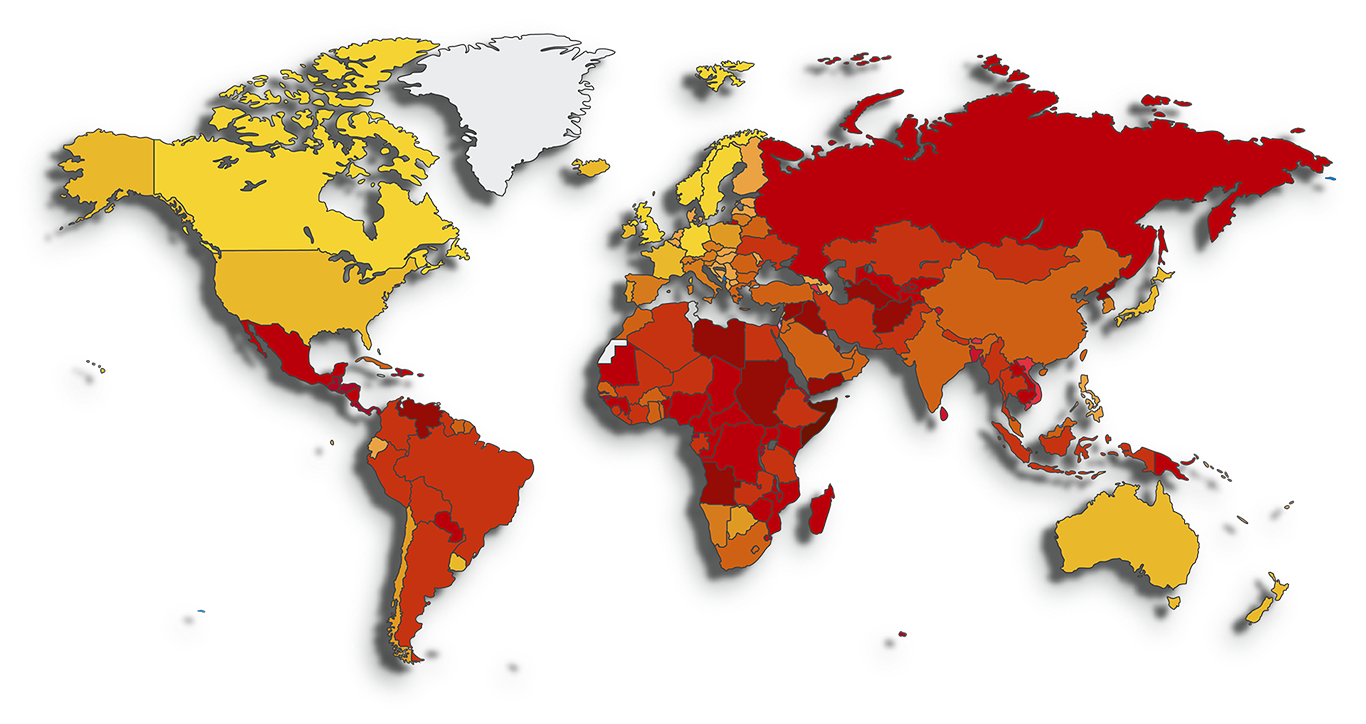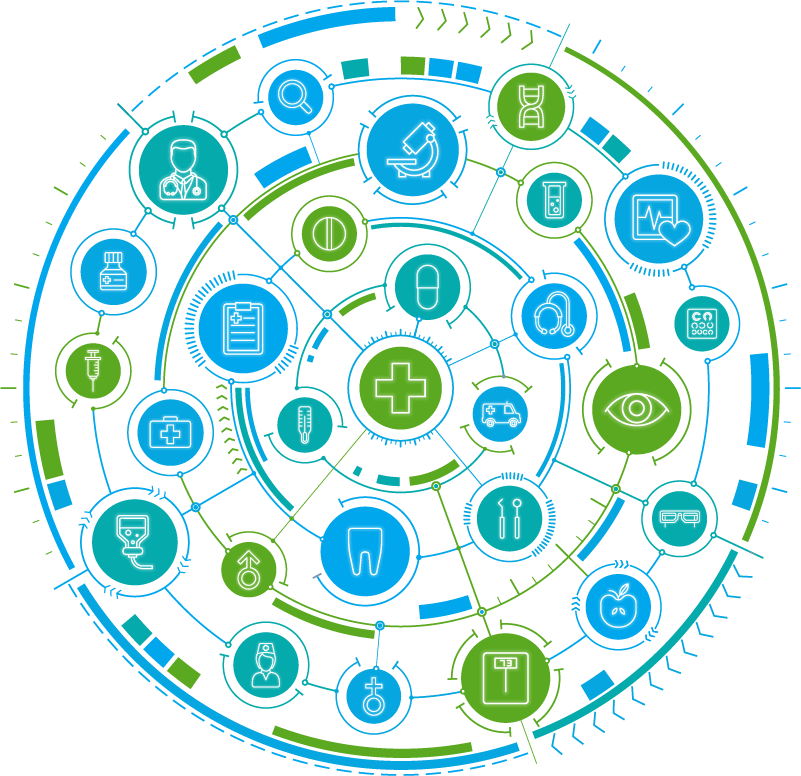Transform Global Health is an initiative to improve the state of healthcare globally
Our current approach to healthcare isn't working. Medical science has made progress by leaps and bounds with the advent of antibiotics, modern surgery, and the increasing application of technology to every area of healthcare, that has improved human life expectancy and recovery from disease. However, the way we provide healthcare to people across the world needs massive improvement. Not only is it preventing us from realizing the full benefits of the medical advancements we have made, but it is also holding back our true potential for progressing medical science to benefit humanity.
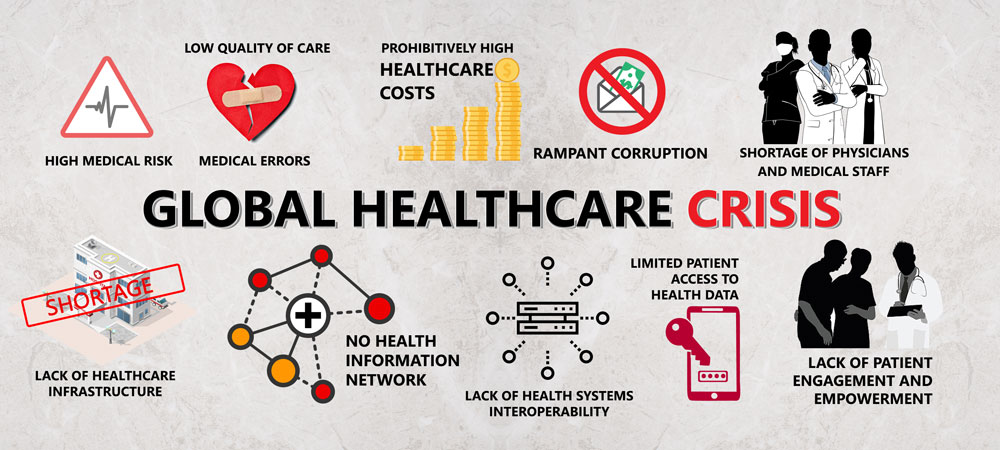
Today, there is high health risk across vast regions of the world. There are issues with the quality of care including inaccurate diagnosis, medical errors, and problems with medical practices in all countries at all economic levels. Healthcare infrastructure is lacking across most regions in the world and there is a severe lack of physicians and medical staff virtually everywhere. Underprivileged and developing nations severely lack health infrastructure and services, while the cost of healthcare is getting prohibitively high in advanced nations, increasing at a rate where it will become over 50% of the gross domestic product (GDP) before the end of the century, a level of expenditure that can bankrupt most countries! There is a global deficiency of physicians and medical staff. While poor nations are the worst hit, developed nations are facing a severe problem as well, with theUSA projecting a shortage of more than 100,000 doctors by 2030. Even this doesn’t give a fully accurate picture, as the lack of trained, experienced physicians makes the situation even worse. Perhaps the most alarming and disturbing problem caused by today’s approach and systems is the rampant corruption in healthcare at a global scale. Physicians all over the world get kickbacks for prescribing medication. Doctors in India routinely perform procedures such as putting unnecessary stents in patients’ arteries or performing unrequired hysterectomies on the poorest women after childbirth to collect government insurance. Patients have to pay bribes in places like France, Germany and China for getting proper healthcare. Even in today’s information age, health information is not managed or handled properly. With the corporate inspired, enterprise driven approach most of the world is taking, economically challenged and developing nations cannot afford the expenditure for implementing electronic health records and advanced nations like the USA have severely flawed implementation resulting in health systems that fail to communicate with each other, do not empower patients or provide them more transparency, and cause resentment and burnout amongst physicians and medical staff. Indeed, fully 50% of physicians in the USA say that they do not want their children to take up medicine, a disturbing trend that is bound to catch up with us in the worst way possible.

Looking at all these problems, it is apparent that the state of healthcare is a “global epidemic”! We must do something about it. We must take a fresh approach. We must bring about a global transformation. Transform Global Health is an initiative to help achieve this. It is an action oriented program that will not just highlight global healthcare issues and bring our voices together, but also fund and implement actual, large scale, impactful projects that will achieve concrete results in transforming healthcare.
The first two projects we have undertaken are to implement a universal health information network (UNHIN), and to create a model hospital system that implements efficient technology, ethical practices and the controls required to provide the highest quality of care
There are significant issues with healthcare across the world
Global Health Risk
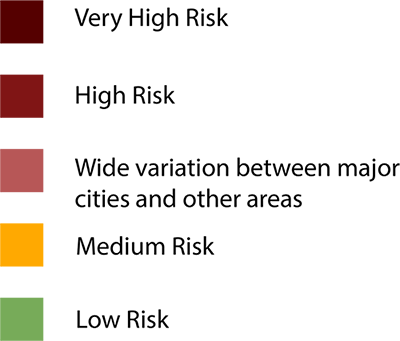
- International SOS Health Risk Outlook: https://www.internationalsos.com/risk-outlook
Poor quality health services are impacting healthcare globally in countries at all income levels
- 10% of hospitalized patients can expect to acquire an infection during their stay in low and middle income countries -7% in high-income countries, and one in ten patients is harmed during medical treatment in high income countries
- Health care workers in seven low- and middle-income African countries were only able to make accurate diagnoses one third to three quarters of the time, and clinical guidelines for common conditions were followed less than 45 percent of the time on average
- A recent Johns Hopkins study indicates that more than 250,000 people in the U.S. die every year from medical errors, making it the third-leading cause of death after heart disease and cancer. Other reports claim the numbers to be as high as 440,000
- The broader economic and social costs of poor quality care, including long-term disability, impairment and lost productivity, are estimated to amount to trillions of dollars each year
- Delivering quality health services - A global imperative for universal health coverage, WHO-OECD-World Bank joint publication, July, 2018: http://www.who.int/servicedeliverysafety/quality-report/en/
- A new evidence based estimate of patient harms associated with hospital care: https://journals.lww.com/journalpatientsafety/Fulltext/2013/09000/A_New,_Evidence_based_Estimate_of_Patient_Harms.2.aspx
- CDC statistics on deaths and mortality: https://www.cdc.gov/nchs/fastats/deaths.htm
- The third-leading cause of death in US most doctors don't want you to know about: https://www.cnbc.com/2018/02/22/medical-errors-third-leading-cause-of-death-in-america.html
Underprivileged and developing areas lack healthcare resources while developed nations are struggling with unmanageably high costs
- There is a deficiency of healthcare infrastructure and a lack of physicians and healthcare professionals across vast regions of the world
- At least half of the world's population cannot obtain essential health services
- 5 billion people lack access to safe, affordable surgical and anesthesia care when needed, and 143 million additional surgical procedures are needed each year to save lives and prevent disability
- The world will have a shortage of 12.9 million health-care workers by 2035 (in 2013, that figure stood at 7.2 million). The Association of American Medical Colleges projects that USA will have a shortage of over 100,000 physicians by 2030
- Global spending on health is expected to increase from US$7.83 trillion in 2013 to $18.28 trillion in 2040
- Many low-income and lower-middle-income countries will not meet internationally set health spending targets, while developed nations continue to spend too much
- For almost 50 years, spending has grown by 2 percentage points in excess of GDP growth across all Organization for Economic Co-operation and Development (OECD) countries. If this trend continues by 2080 Switzerland and USA will spend more than half their GDP on health care and by 2100 most OECD countries will reach this level of spending
- CIA World Factbook: Physicians Density: https://www.cia.gov/library/publications/the-world-factbook/fields/2226.html
- CIA World Factbook: Hospital Bed Density: https://www.cia.gov/library/publications/the-world-factbook/fields/2227.html
- CIA World Factbook: Health Expenditures: https://www.cia.gov/library/publications/the-world-factbook/rankorder/2225rank.html
- Tracking Universal Health Coverage , WHO & World Bank: http://pubdocs.worldbank.org/en/193371513169798347/2017-global-monitoring-report.pdf
- Health workforce shortage, WHO: http://www.who.int/mediacentre/news/releases/2013/health-workforce-shortage/en/
- Research Shows Shortage of More than 100,000 Doctors by 2030: https://news.aamc.org/medical-education/article/new-aamc-research-reaffirms-looming-physician-shor/
- The McKinsey Quarterly: Health care costs: https://www.mckinsey.com/~/media/mckinsey/dotcom/client_service/healthcare%20systems%20and%20services/pdfs/healthcare-costs-a-market-based-view.ashx
Corruption in health care is endemic worldwide in public and private sectors, and in developed and resource-poor settings alike
- Corruption is a serious threat to global health outcomes, leading to financial waste, compromised health security, and adverse health consequences. Forms of health corruption are diverse and complex and impact both developed and developing countries
- Many governments fail to prevent a "black market" in health, where widespread corruption, bribery, "moonlighting" and other illegal practices flourish
- A study in Europe revealed that bribery in medical services is a major challenge. European Countries where patients have the most frequent experiences of paying for privileged treatment are: Slovakia (41%), Slovenia (38%) and Germany, Spain, France and Sweden (all 29%), while the EU average stands at 19%
- Surveys report that 80% of individuals in developing countries have experienced health sector corruption. Publications on details of corruption provide an alarming picture
- As an example, there are several reports of alarming corruption in India related to widespread kickbacks, bribery, unnecessary medication, treatment, surgeries, and more
- World Health Organization Assesses the World's Health Systems: http://www.who.int/whr/2000/media_centre/press_release/en/
- Updated Study on Corruption in the Healthcare Sector: https://ec.europa.eu/home-affairs/sites/homeaffairs/files/20170928_study_on_healthcare_corruption_en.pdf
- Combating healthcare corruption and fraud with improved global health governance: https://www.ncbi.nlm.nih.gov/pmc/articles/PMC3519514/
- Transparency International Global Corruption Barrometer: https://www.transparency.org/research/gcb/overview
- Study Finds India Is Asia's Most Corrupt Country, While Japan Comes In Last: https://www.forbes.com/sites/suparnagoswami/2017/03/08/study-finds-india-is-asias-most-corrupt-country-while-japan-comes-in-last/#4ed8a23d1201
- Healers or Predators, ISBN-13: 978-0199489541, OUP India: https://global.oup.com/academic/product/healers-or-predators-9780199489541?cc=us&lang=en&
Poor handling of health information is a major issue globally that causes multiple problems and frustration for patients and physicians
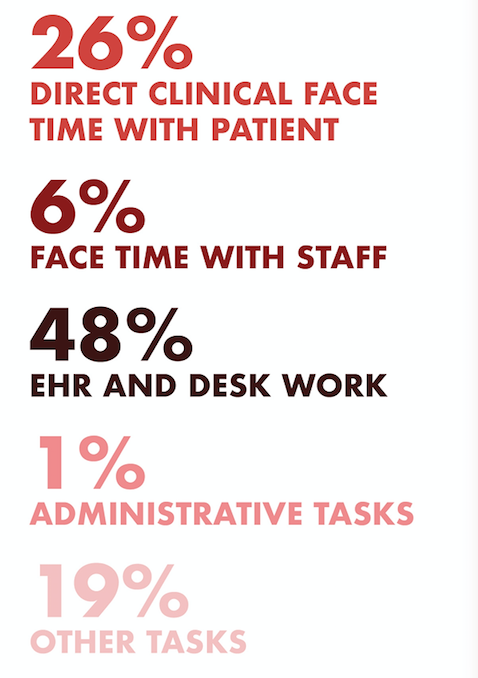
- Handling of health information is problematic globally. While this applies to every aspect of healthcare, including drug production, clinical research and trials, analysis of treatments, identification of health trends, etc., it is most evident in the area of electronic health records (EHR)
- Advanced nations that have wide adoption of EHRs have taken a highly problematic and expensive approach, with the global expenditure on EHR expected to reach $33.4 Billion by 2025
- EHRs have been implemented as silo systems that do not interoperate. Health systems use multiple EHR software packages (with 1000+ vendors). Silo EHR systems cannot exchange information between hospital departments, let alone more broadly across organizations
- The current approach to EHR is not providing the expected level of patient engagement and is also causing stress and dissatisfaction for medical staff. As an example physician burnout is affecting about 50% of practicing doctors in USA with EHR implementations taking the blame as the most significant factor
- Several problem areas such as improper or inaccurate tabulation of healthcare statistics, distribution of counterfeit drugs in the market, and many more can be improved immensely with a well implemented health information network
- EHR interoperability, connectivity a big challenge around globe new study finds: https://www.healthcareitnews.com/news/ehr-interoperability-connectivity-big-challenge-around-globe-new-study-finds
- Use of more than one electronic medical record system within a single health care organization: https://www.ncbi.nlm.nih.gov/pmc/articles/PMC3613036/
- EHRs get most blame for epidemic of physician burnout: https://www.healthdatamanagement.com/news/ehrs-get-most-blame-for-epidemic-of-physician-burnout
- To Combat Physician Burnout and Improve Care, Fix the Electronic Health Record: https://hbr.org/2018/03/to-combat-physician-burnout-and-improve-care-fix-the-electronic-health-record
- Electronic Health Records Market: https://www.transparencymarketresearch.com/electronic-health-records-market.html
- Electronic solutions for combating counterfeit drugs: https://www.ncbi.nlm.nih.gov/pmc/articles/PMC4517327/
- Growing threat from counterfeit medicines: http://www.who.int/bulletin/volumes/88/4/10-020410/en/
Transform Global Health Projects
Universal Health Information Network (UNHIN)
Model Hospital System
Develop a model hospital system that will provide a template for rapidly developing healthcare infrastructure at affordable costs, while implementing efficient technology and ethical practices and controls to provide the highest quality of care.
This project includes developing a 300 bed quaternary care, multi-super-specialty hospital with 5 secondary care satellite centers in India that will be used as a model for expansion nationally and internationally. India presents a unique opportunity for undertaking such a project. The country has a severe deficiency of healthcare infrastructure with just 0.7 hospital beds per thousand people, while having a strong economy, affordable cost of services, and positive focus and incentives related to healthcare from the national government. This combination of factors allows us to implement a project that will fulfill a dire need while providing an attractive return to investors.
This will be a Joint Commission International (JCI) accredited healthcare system, providing the highest level of internationally recognized quality of healthcare. It will additionally apply several innovations for implementing a smart hospital, using green engineering and construction practices, and implementing patient-centric healthcare practices that enhance the interaction between patients and physicians, and monitor and manage medical errors, and discourage and report on healthcare corruption.
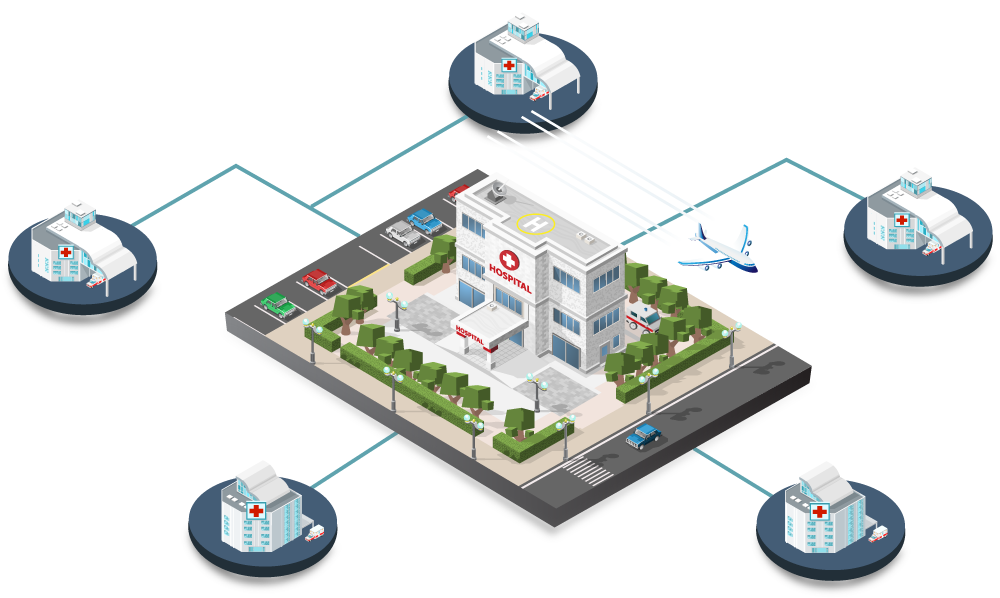
Featured Blogs

Knowtechie.com
I’ve been following this site since it started and has seen its progression from just one guy writing about stuff he loves, to a site that get’s decent traffic and has a team of writers.Knowtechie is a great example ...
